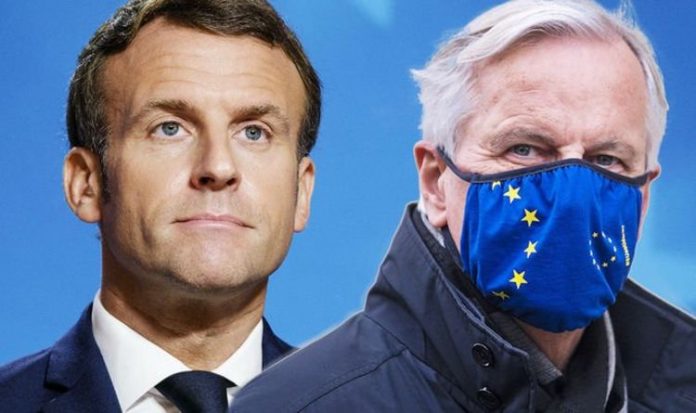Brexit: Expert discusses why Macron has been ‘tough’ in talks
Trade talks between the UK and EU are due to resume later today in a final bid to agree a post-Brexit deal. The two sides were said to be close to reaching an agreement last week but the discussions appeared once again deadlocked after several EU member states raised serious doubts about the direction of talks. The EU’s chief Brexit negotiator Michel Barnier was forced to brief EU ambassadors and members of the European Parliament as diplomats were concerned that the French negotiator could be tempted to compromise too much to secure a deal.
One EU diplomat said Mr Barnier’s briefing “was mostly an exercise to calm nerves in Paris and elsewhere”.
The key sticking points in the talks remain in the areas of “level playing field” conditions for business, fishing rights, championed by France, and how any trade deal might be implemented.
According to senior political sources in France, because French President Emmanuel Macron is facing domestic threats to his re-election, he would rather see the talks flounder than agree to a bad deal that could tempt other EU states to leave the bloc.
Europe’s power to protect itself from major global rivals, pandemics, economic crises, migration and climate change will be a major electoral argument for Mr Macron as he climbs up for his 2022 re-election bid, most likely against National Rally leader Marine Le Pen, who he defeated in 2017.
A source said: “France’s stance is to show that Brexit cannot be a success.
“From that point of view, the prospect of no deal is not necessarily a problem.”
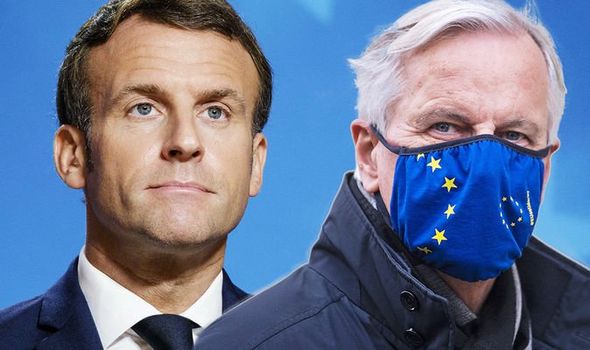
Macron bending EU rules as proof Barnier ‘stretching mandate to suit France’ exposed (Image: PA)
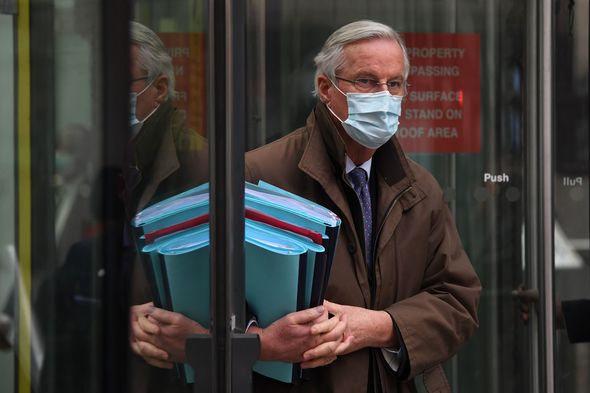
The EU’s chief Brexit negotiator Michel Barnier (Image: GETTY)
The claims come as Mr Macron’s close aide Clément Beaune recently warned that France will veto a “bad” post-Brexit trade deal.
Mr Beaune said: “I want to tell our fishermen, our producers, the citizens who are listening that we will not accept a deal with bad terms.
“If a good agreement cannot be reached, we will oppose it.
“Each country has a veto right.”
Paris’ stance should not come as a surprise, though, as ever since he became President, Mr Macron has actively tried to influence the Brexit process.
When talks on the future relationship between Britain and the EU started in February, former Foreign Secretary and co-founder of the SDP Lord David Owen told Express.co.uk: “I don’t think people are quite realising how significant the change in the EU position is.
“Firstly, the spokesman is Michel Barnier, but is it Barnier himself or is he under instructions?
“If he is under instructions, the instructions are coming from Emmanuel Macron, who has told him he does not want a long deal and he is not prepared to live with a Canada settlement.”
He added: “It may be others, though. It may be Barnier reading the view of the European Parliament.
JUST IN: Iceland opened door to special fishing partnership for Brexit Britain
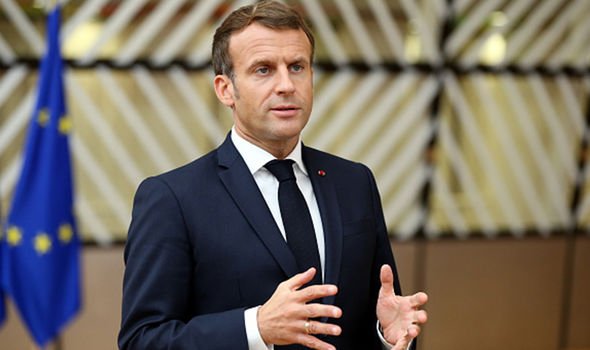
French President Emmanuel Macron (Image: GETTY)
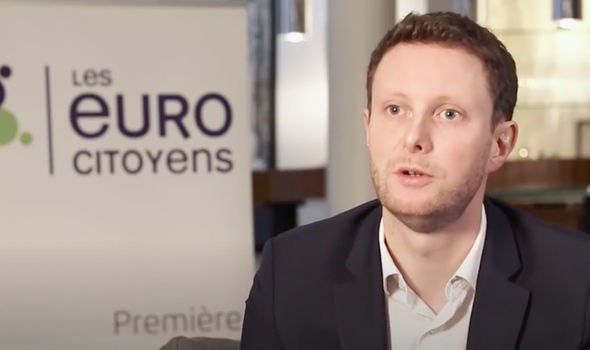
France’s Europe Minister Clement Beaune (Image: LES EUROCITOYENS)
“But under Donald Tusk, the former President of the EU Council, the British people and the British Government were told on a number of occasions that a Canada-style deal was acceptable.
“Now we are told it has been withdrawn and that we live too close to them to get one.”
In 2019, Mr Tusk did claim that “from the very beginning, the EU offer has been not just a Canada deal, but a Canada+++ deal, much further-reaching on trade, on internal security and on foreign policy cooperation”.
It is not clear whether the ex-EU Council President also wanted the UK to sign up to “specific and effective” guarantees, though.
When asked to analyse Mr Macron’s personality, Lord Owen claimed he would be a prime candidate for “hubris syndrome” – a condition where the behaviour of politicians, business leaders, and other people in power, changes for the worse as they come to enjoy increasing power and influence.
The prominent eurosceptic added: “Indeed one of his ministers in his government resigned having made a speech on television and used the word hubris.
“He is a very strong candidate.”
The French President also appears to have meddled in the Brexit talks in September 2019 – when France lashed out at Prime Minister Boris Johnson for seeking to negotiate “mini-deals” with individual EU member states that would have cushioned the blow of crashing out of the bloc with no withdrawal agreement.
DON’T MISS
France warned its navy ‘could intervene to avert new scallop war’ [INSIGHT]
Leaked document exposes EU’s ‘desire to keep Britain under its Courts’ [REVEALED]
UK leaders ‘willing to wipe Britain off map in bid to join EU’ [EXCLUSIVE]
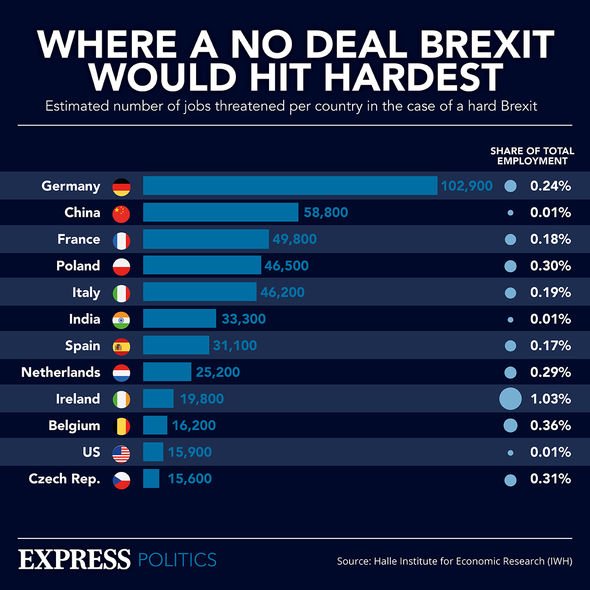
Where a no deal Brexit would hit the hardest (Image: EXPRESS.CO.UK)
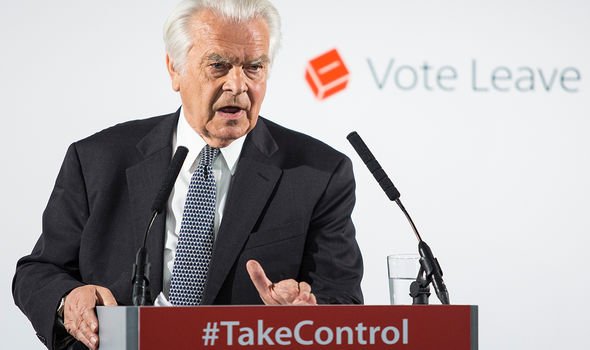
Lord David Owen (Image: GETTY)
Amélie de Montchalin, France’s former Europe minister, said the British were trying to set up bilateral meetings to organise what they call a “managed no deal”.
As a consequence, Brussels repeatedly urged governments to rebuff such attempts, even though it does not go against EU rules.
Mr Barnier said there was no such thing as a “managed no deal”, and that in such a scenario the EU would have refused any negotiations with Britain until it paid the £39billion exit bill agreed on by former Prime Minister Theresa May.
Officials co-ordinating no deal planning in the 27 remaining EU countries discussed the British approaches at a meeting in Brussels on September 5, 2019.
The Council subsequently sent an email out to governments asking them to report on any contacts.
The email, seen by the FT, asked whether “national authorities [had] been approached by UK representatives in view of discussing bilateral agreements and/or administrative arrangements and/or memorandum of understanding or any other type of arrangement in view of a no-deal Brexit? If so, in which sector/domain?”
It also asked them whether they had entered into any agreements.
Ms de Montchalin, who was speaking at a news conference after a meeting with ambassadors from all EU countries other than Britain, said: “What the British are looking to do is to take the rather special relationship they have with each member state and see if they can recreate it before the moment of divorce, of separation, thanks to these mini-deals.
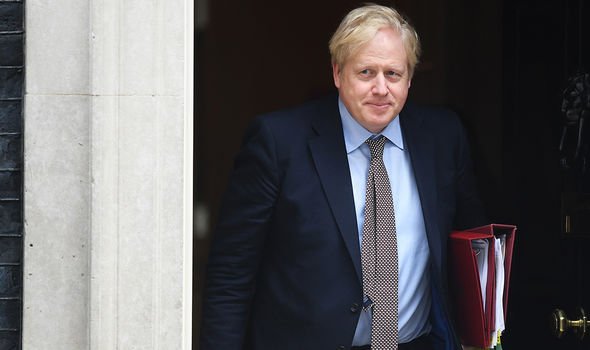
Prime Minister Boris Johnson (Image: GETTY)
“It’s totally contrary to the spirit in which we are negotiating.”
But not only did Brussels effectively veto Britain’s chance to strike mini-deals with EU members, Mr Barnier has also ruled out signing up to mini-deals with Mr Johnson if the main talks break down.
Lee Rotherham, the former director of Special Projects at Vote Leave, argued there are actually several options available to Brexit Britain that haven’t been considered.
Mr Rotherham said: “Brexiteers have been spending years trying to explain what no deal really is.
“The context is one of international defaults, in trade terms largely based on World Trade Organisation (WTO) terms’.
“But on top of that are the agreements the EU has reached multilaterally with other countries, and also bilaterally – as mini deals.”
Remainers have repeatedly claimed that a cliff edge awaits Britain because the EU will not sign such arrangements, despite both the precedent and “uncontentious nature” of many of them.
They have suggested that the UK could not possibly get an Australian-style deal because of these bolt-ons that turn WTO-only into WTO+ – and with genuinely friendly talks, possibly at least one more ‘+’ on top of that.
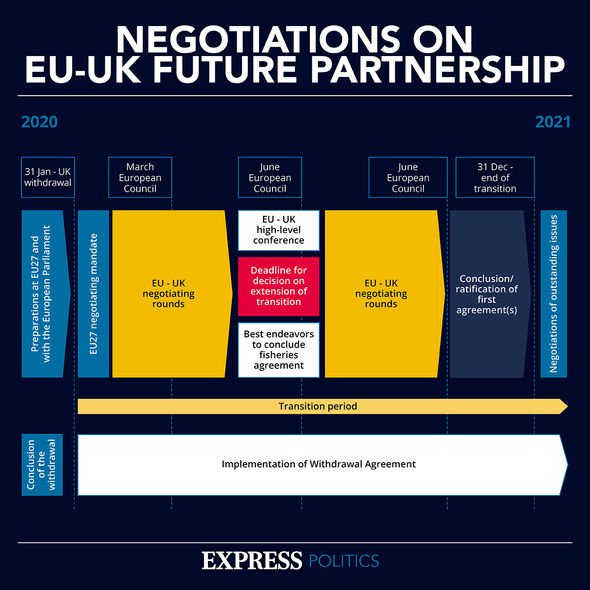
EU-UK trade talks (Image: EXPRESS.CO.UK)
The US has 147 similar agreements with the EU, while Australia has 86, Canada has 117 and Switzerland 207.
For further contextualisation, Mr Rotherham added, Kiribati has 32, Iran a like number, and Mongolia 47.
He added: “The EU website has finally now put up a key page, listing the bilateral and multilateral agreements to which the EU and UK is a signatory.
“There are 286 such joint agreements in place between the UK and EU. Some no deal vacuum.”
